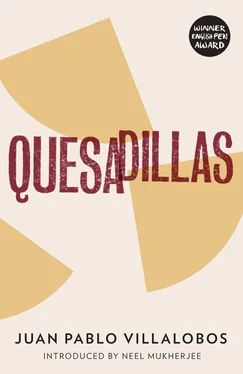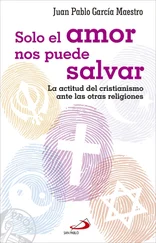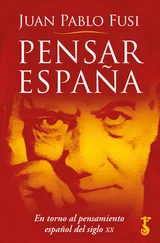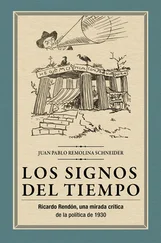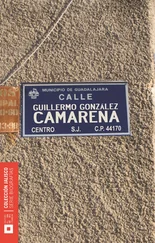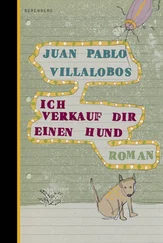My father went through a first stage of denial, during which he kept saying, ‘Nothing’s going to happen. They’re just trying to scare us. It’s illegal. They can’t do it.’
This stage lasted fifteen minutes, the time it took to read and re-read the eviction order several times and remember which country we lived in. This was why we watched the news every night, so as not to let our guard down and remain permanently on the defensive.
One of the effects of the anxiety that began to consume us was the reinterpretation of several facts in our recent history: suddenly I was the pariah of the family for having worked with Jaroslaw, as if it hadn’t been my father who’d forced me to do it, as if chickens chose to live on farms.
‘You’re a lousy traitor,’ said Aristotle again and again, and the rest of my siblings joined in with a loyalty as great as the indignities I had meted out to them during my fleeting reign.
The beatings came naturally: they were a way for my sister and brothers to de-stress and for me to disguise myself as a victim and forget my true role in this mess. You deserve it , I said to myself, you deserve it, you traitor , not so much for my conspiracy with the Poles, but rather for something I would never admit to my family: I wanted them to destroy this lousy house.
My father framed the colonisation of the Cerro de la Chingada within the local power struggle between the opposition — the Little Rooster’s people — and the PRI. He thought that things were being done at breakneck speed so as to have the land parcelled up and sold before the following year’s elections, in which the opposition would probably win again and would in all likelihood also have the elections stolen from them again. He thought that the solution would be to mobilise the synarchists, to organise a sit-in of cripples and religious old ladies who would stop them tearing down our house. As if these people had won a single battle in the last hundred years. The strategy seemed more designed to sow vines of confusion than to save us from misfortune.
While my father was organising the resistance, my mother was packing, against the paternal will. In the evenings some of my father’s colleagues, teachers at the state high school, started coming to the house. And the Little Rooster’s activists came too, demanding to say a Vía Crucis before or after the meeting, an entire Vía Crucis, with all its fourteen stations. We started praying because my father said we really needed their support, but to me the activists looked so skinny, so despondent, so ragged that I could only imagine them falling flat on their backs at the first whisper from the police. And anyway, how was it meant to spur us on if out of the fourteen stations, Jesus Christ lost in twelve? And as if that wasn’t enough, when he did finally win he was already dead.
The discussions on how to proceed didn’t fill us with confidence either. The synarchists were experts in using archaic terms and their interpretations were really dull, because they didn’t have TVs. They formulated minimalist sentences with no hidden meanings, which were condemned to the most empty literalness. Back in the good ole days , they would recall; Tha’s it, tha’s it , they would advise. They spoke without inflection, gesticulating or using their hands. And they couldn’t do body language at all!
The contrast with the talks between my father and his colleagues was grotesque. They earned a paltry living by talking, reading fragments of books aloud, transmitting meaning even when they were silent, listening to their students. They used rulers or batons to emphasise their hand movements, they had tics such as brushing imaginary dust off their shoulders or rolling up their sleeves, they pursed their lips and screwed up their eyes; at the absolute peak of semiotic exaggeration not even their eyebrows were wasted in the communication of meaning. Worse still, they had seen tons of political speeches, on TV and first-hand, during the campaigns. They were cultivators of creeping vines without fruit, weeds that didn’t need tending because they grew all on their own, wild. One called for sedition, which his colleagues condemned as incendiary and the synarchists didn’t even understand. What’s sedition? Isn’t it a sin? Another wished for the emergence of a republic in which it was the people who became institutionalised. To complete the confusion, my father suddenly asked for silence and ordered me, ‘Now recite.’
And off I went: ‘When the tyrant offers guarantees, he entertains only the intention of claiming proselytes, this ruse serving as a way of tricking ignorant fools who tomorrow, when his famous government collapses, might serve him as a shield to flee easily abroad, to enjoy the monies stolen from the Mexican people, abandoning this cannon fodder to their fate, etc, etc.’
Who knows what good these nightly sessions would do? To cut a long story short, the only motivation we had was an act of vandalism: one day a huge piece of graffiti with the rebels’ slogan appeared on the wall of the Poles’ house: Justice for Lagos .
Although we didn’t intend this, the ultimatum together with the religious zeal and the political meetings at home meant that our nights of quesadillas began to grow sad once again. We grew full very quickly — there was even one night when there were quesadillas left over! My mother turned off the heat at the griddle and came over to the table to see a tortilla dish quite free from wrangling.
‘You’re wasting your time. It won’t do any good,’ she told my father, the executioner giving the deceased chicken’s neck just one more twist.
‘All I need is for them to be here on the day,’ my father replied, because to him what mattered was that we had an audience for our execution.
The night prior to the ultimatum, a family committee showed up at our house, made up of three of my father’s brothers and one of his brothers-in-law. They had made some enquiries and said that the council had already hired two bulldozers. Two bulldozers to knock down our house? It must be a precaution, just in case one broke down, so that the other could take over; there’s nothing worse than an anticlimax.
They tried to convince my father, but it was too late. It had always been too late, right from the start. Time had actually become distorted, because in each and every present moment that went by, from the arrival of the ultimatum up to the denouement, it was always too late, as if the end had occurred at the beginning and all that remained after that was to implement protocol. Faced with my father’s refusal and my mother’s tears — which were truly moving (if they were for us, who saw her cry every day, I can’t imagine what my relatives must have felt) — the committee moved from words to action. They all held my father down and dragged him out of the house. Aristotle was shouting, ‘Leave him alone, leave him alone,’ and the rest of us were so frightened that all we could do was channel our fear by crying noisily.
My father was a chicken for whom one executioner was not enough, nor four; an entire system of injustices was required, the foundation of a country eternally organised around fraud, in order to execute him.
Before they got to the door it became clear that none of my uncles wanted to play the role of executioner either; my father escaped from their eight arms and dealt a blow to the face of the man closest to him. An enormous bruise appeared over the right eyebrow of my father’s youngest brother, then my father approached him again, this time to embrace him.
‘You’re being a real arsehole, man.’
My uncles went, leaving behind them a state of emergency that was appropriate for what happened next. My father took advantage of the atmosphere’s going from tense calm to hysteria to remind us of the following day’s agenda, which he announced as if he was the general in a war of chickens. We would have to get up at four thirty in the morning, the synarchists would arrive at five, we’d have to give them breakfast, coffee and eggs, and organise the cordon around the house. And then wait. And then wait some more. And some more. And some more.
Читать дальше
